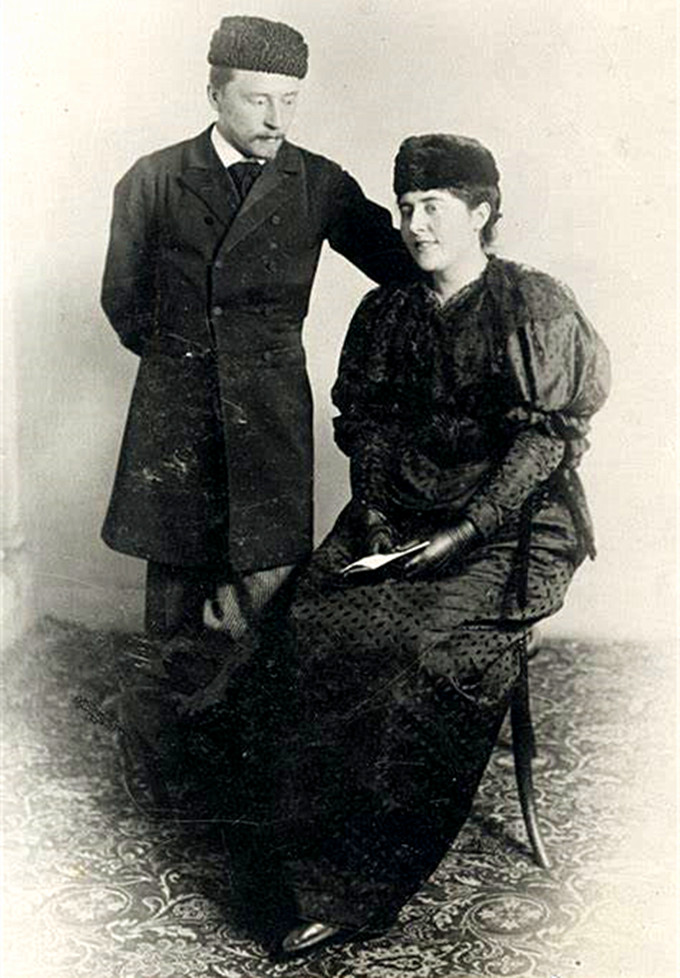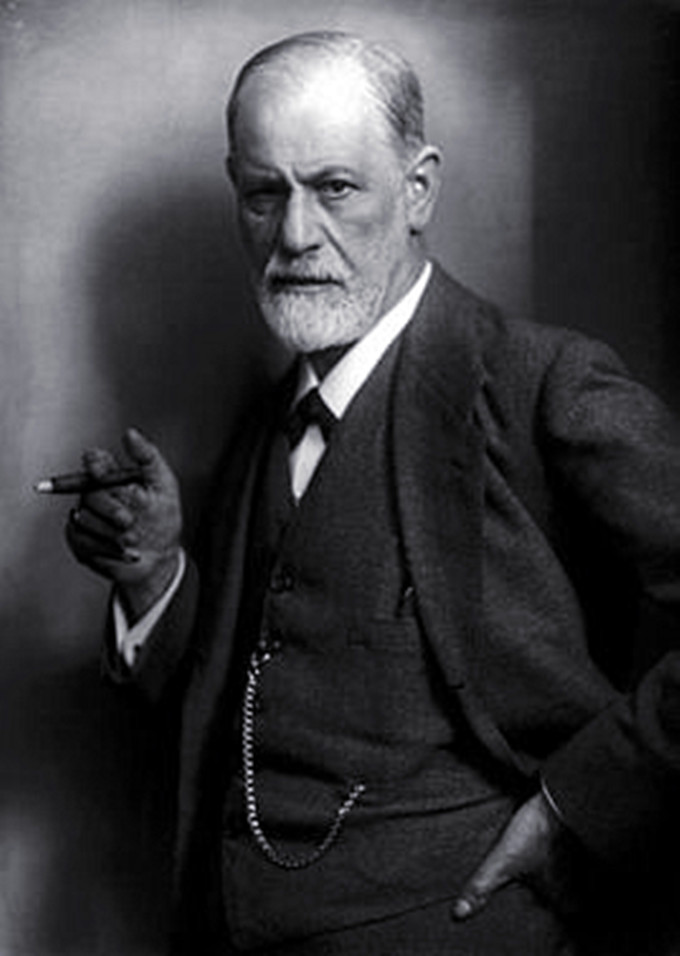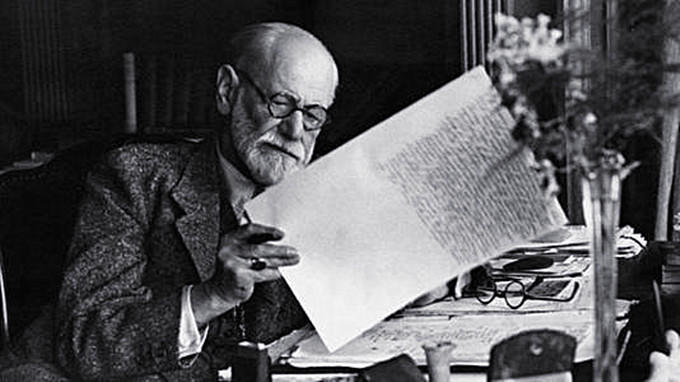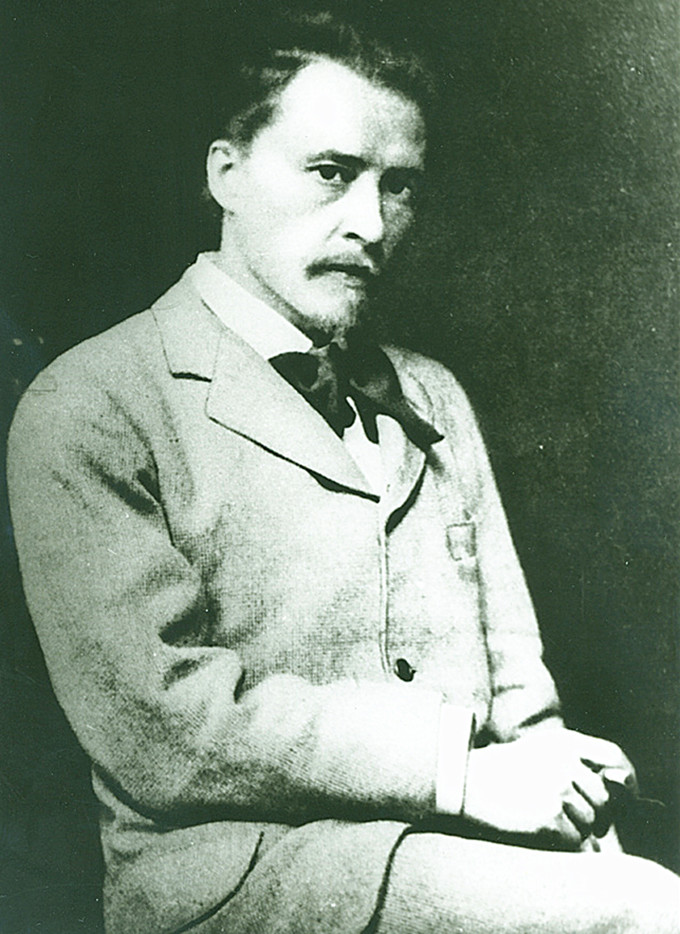|
||||||||||||||||||||||||||
 |
 |
|||||||||||||||||||||||||
|
|

|
|||||||||||||||||||||||
|
|
|
||||||||||||||||||||||
| 沃尔夫·胡戈 ( Wolf Hugo 1860-1903) | |||||||||||||||||||||||
| 亚历山大·塔劳德与芭芭拉·汉尼根法兰西音乐节上合作的沃尔夫·胡戈的歌曲 | |||||||||||||||||||||||
Hugo Wolf Mignon Lieder par Alexandre Tharaud et Barbara Hannigan |
|||||||||||||||||||||||
|
|
|||||||||||||||||||||||
|
音乐历史上的今天
1903年2月16日奥地利作曲家沃尔夫·胡戈(Wolf Huge)死於精神病院。 其中,沃尔夫·胡戈 ( Wolf Hugo 1860年3月13日-1903年2月16日),真称得上是一个“疯狂的天才”。他一生只活了四十三岁,二十七岁时才真正开始创作,三十七岁以后即已完全陷于疯狂状态。在仅剩的十年中,还有整整五年(1890-1895)处于他自己所说的“灵感 终结”、“精神衰竭”以至连一个音符也写不出来的情况,他一生真正的创作生命只有短短四、五年的时间。但他的创作激情就象是火山爆发一样。在一八八八年到一八九O年间,就狂热地连续写了约两百首歌曲,然后停顿了一年半,天才的洪流重又奔腾起来,一口气又写了十五首歌曲,有时一天写好几首,然后又是长达五年的创作源泉的干涸......。直到一八九七年正在创作歌剧《曼纽尔·维里加》高潮阶段,诱发了疯病。 就此结束了他的艺术生命。 沃尔夫不但是作曲家,也是音乐评论家。出生於现斯洛文尼亚境内的温迪施格拉茨(现名斯洛文尼亚格拉代茨)。1875年入维也纳音乐学院学习,两年後被开除。靠教学和为《维也纳沙龙花絮》写音乐评论勉强维持生活。他在1876年开始写歌,此后创作生涯以写作歌曲为主。工作极不规则,一阵子才思横溢,过后往往无所作为。疯狂崇拜瓦格纳,在评论中一有机会便表示对他的偏爱。瓦格纳的影响也反映在他的歌曲伴奏中,常具独立器乐曲的性质,人声反而象是后加的。这倒不是把歌唱视作多余,而是他酷爱地道的朗诵,具有用音乐反映歌词意境的独特天赋,因而写出来的声乐线条就象瓦格纳的那样,成了名副其实的宣叙调,在一个保证乐思持续不断并合理发展的伴奏之上 按严谨的拍子唱出。1881年曾短暂担任过萨尔茨堡歌剧院第二合唱指挥,其他生活来源主要靠写音乐评论和友人接济。1897年,沃尔夫精神失常,1903年死於精神病院。
主要作品有:
|
|
||||||||||||||||||||||
 |
|||||||||||||||||||||||
| 沃尔夫·胡戈(德语: Wolf Hugo) | |||||||||||||||||||||||
| 沃尔夫·胡戈(德语: Wolf Hugo,1860年3月13日-1903年2月22日),又译吴尔湖,奥地利作曲家,音乐评论家。出生於现斯洛文尼亚境内的温迪施格拉茨(现名斯洛文尼亚格拉代茨)。1875年入维也纳音乐学院学习,两年後被开除。1881年曾短暂担任过萨尔茨堡歌剧院第二合唱指挥,其他生活来源主要靠写音乐评论和友人接济。1897年,沃尔夫精神失常,1903年死於精神病院。 | |||||||||||||||||||||||
| Glinka is the true founder of Russian folk music and is honored as "father of Russian music". He created a broad prospect for the development of Russian folk music and played a decisive role in the development of Russian folk music.After him, Russia appeared a large number of mature, skilled folk music masters. | |||||||||||||||||||||||
|
|
|||||||||||||||||||||||
|
Today in music
history On February 16, 1903, the Austrian composer Wolf Huge died in a mental hospital. Freud, the founder of psychoanalysis, once said, "artists are all introverts, not far from psychosis."To the artist as a whole it is a slander;But individually, that may be true.There are two examples in the music industry -- schumann and Wolf.They were all great musical geniuses. In their later years, they were both mentally ill. They wanted to commit suicide by jumping into a river. Among them, Wolf Hugo (March 13, 1860 -- February 16, 1903) was a "mad genius".He lived only forty-three years, and at twenty-seven he really began to write, and after thirty-seven he was in a state of complete madness.In the last ten years, there were still five full years (1890-1895) in what he called "the end of inspiration" and "mental exhaustion", in which he could not even write a note. His real creative life was only four or five years.But his creative passion was like the eruption of a volcano.Between 1888 and 1890, he feverishly wrote about two hundred songs in a row, then paused for a year and a half, then the flood of genius surged again, writing fifteen more songs at a time, sometimes several a day, then another five years of foundries....It wasn't until 1897, when he was working on the opera Manuel verriga at its height, that he started the madness.Thus ended his artistic life. Wolf Hugo was not only a composer but also a music critic.He was born in wendi schgraz, now Slovenia.He entered the Vienna conservatory in 1875 and was expelled two years later.He eked out a living by teaching and writing music reviews for the Vienna salon.He began writing songs in 1876, and his career has been dominated by songwriting ever since.Work is highly irregular, brilliant for a while, then often do nothing.Fanatical admiration for Wagner, in the comments at the opportunity to express his preference.Wagner's influence is also reflected in the accompaniment of his songs, which often have the character of independent instrumental music, and the human voice, on the contrary, seems to be an afterword.This was not to regard singing as superfluous, but his passion for authentic recitation, and his unique gift for musically reflecting the mood of the lyrics, made the vocal lines, like Wagner's, veritable narrative, sung in a precise time over an accompaniment that ensured the continuity and rational development of the music.He was briefly the second chorus conductor of the salzburg opera house in 1881, and his other sources of income were music critics and friends.Wolfe became insane in 1897 and died in a mental hospital in 1903. Main works include: (1) songs: songs after death (youth work, 1936);Twelve songs of youth (1877-1878);Songs by different authors (including scores for the poems of gottfried krall, Ibsen, Robert reinicke and Michelangelo, 1877-1897);The song of morick (1888);The song of eschendorf (1888);Goethe's song (1889);Spanish anthology (1890) : Italian anthology (1891, 1896). (2) opera: Sir.Mannheim, 1896) : (3) chorus: Christmas Eve (1889);The song of the goblins (1891);The flaming horse (1892);To the motherland (1898). (4) orchestral music: pentisilla (symphonic poem, 1885);Italian serenade (1892). (5) chamber music: string quartet (1884);Italian serenade (1887). An anthology of music criticism edited and published by r. bartka and h. Werner (1911). Today's video: 1. Wolf Hugo song by Alexander taraud and Barbara hannigan at the French music festival.2. Anja hatros and Wolfe hamm rige's 2017 concert of German art songs.At 22 minutes and 40 seconds it's Wolf Hugo.3. The Italian serenade by Wolf Hugo |
|
||||||||||||||||||||||
 |
|||||||||||||||||||||||
| 沃尔夫和夫人 | |||||||||||||||||||||||
|
|
|||||||||||||||||||||||
 |
|||||||||||||||||||||||
| 西格蒙德·弗洛伊德(Sigmund Freud) | |||||||||||||||||||||||
|
弗洛伊德世界三个最伟大的犹太人之一,马克思、爱因斯坦、弗洛伊德,这三个人分别打开了三个世界,马克思给我打开了社会世界
;爱因斯坦为我们打开了物理世界。马克思给我们打开了这个世界我们就知道了我们生存的这个世界它的本质是什么,它是如何发展的;爱因斯坦为我们打开了物理世界;弗洛伊德我我们打开了另外一个世界,心理世界,心理世界是一个秘密,在弗洛伊德之前,人们对它知之很少,一片茫然,弗洛伊德出现以后,人类知道了人的心里的秘密。弗洛伊德在人类心理世界做了什么贡献呢?我们给弗洛伊德两个称谓:一个是心理世界的牛顿,一个是心灵的哥伦布。心理世界的基本规律是由弗洛伊德奠定的;哥伦布发现了美洲新大陆,心灵世界是弗洛伊德发现的,这就说明了为什么哥伦布在上个世纪产生如此巨大的影响
。 恐怕没有人会否认精神分析是弗洛伊德对人类的一大贡献。确实,它每日每时都造福于人类:仅在世界各地的精神病诊所,就有成千上万的人接受精神分析,使得掩避他们的精神障碍被逐步祛除,他们心灵的秘密被清晰地揭示出来。但是,十分滑稽的是,弗洛伊德本人却由于精神分析的发现而弄得暖昧不明,面目全非了。一方面,他被奉为顶礼膜拜的偶像;另一方面,他又被斥为招摇过市的骗子,伪科学家、色情狂。在这争吵不休的嘈杂声中,人们无法客观地辨认弗洛伊德的个性特征,也不能正确地评价精神分析学说。 一旦了解了弗洛伊德的个性特征,我们和精神分析学说之间的隔膜就被揭开,我们能够真切地体验到它的精髓。因为弗洛伊德的个性特征构成了他思想、行为的深刻动机,反映了隐藏住火魂深处的内在世界。弗洛伊德实际通过阐发人类现实的一个崭新方面——无意识,以启发和帮助人们用理性控制自己的非理性情感、意欲,实现理性,提高人类文明,这就是弗洛伊德的使命。弗洛伊德企图以救世主拯救人类的理想来征服世界。他自比摩西,要给人类指出理性与和谐的希望之地,而他只能从远处眺望。他是人类的领路人,但是他自己必然怀着深深的失望死去。 |
|||||||||||||||||||||||
 |
|||||||||||||||||||||||
| 西格蒙德·弗洛伊德(Sigmund Freud) 写作中。 | |||||||||||||||||||||||
| 西格蒙德·弗洛伊德(Sigmund Freud,1856年5月6日—1939年9月23日),奥地利精神病医师、心理学家、精神分析学派创始人。1873年入维也纳大学医学院学习,1881年获医学博士学位。1882—1885年在维也纳综合医院担任医师,从事脑解剖和病理学研究。然后私人开业治疗精神病。1895年正式提出精神分析的概念。1899年出版《梦的解析》,被认为是精神分析心理学的正式形成。 1919年成立国际精神分析学会,标志着精神分析学派最终形成。1930年被授予歌德奖。1936年成为英国皇家学会会员。1938年奥地利被德国侵占,赴英国避难,次年于伦敦逝世。他开创了潜意识研究的新领域,促进了动力心理学、人格心理学和变态心理学的发展,奠定了现代医学模式的新基础,为20世纪西方人文学科提供了重要理论支柱。 | |||||||||||||||||||||||
| 安雅·哈特罗斯与沃尔夫哈姆.里格 2017年德语艺术歌曲音乐会。 | |||||||||||||||||||||||
【弦乐】沃尔夫《意大利小夜曲》 |
|||||||||||||||||||||||
| Hugo Wolf: Italian Serenade (1887) 沃尔夫·胡戈,出生于今斯洛文尼亚的奥地利作曲家、乐评家、精神病人。沃尔夫作为乐评家,是瓦格纳的著名粉丝,经常攻击勃拉姆斯。在创作方面,沃尔夫也深受瓦格纳影响,在德奥晚期浪漫主义过渡到20世纪现代派风格的过程中有重要地位,但他的主要作品基本上都是歌曲。这首《意大利小夜曲》是他少见的纯器乐作品之一,原为弦乐四重奏,后改编为弦乐队曲。 | |||||||||||||||||||||||
|
|
|||||||||||||||||||||||
| 未得原作者编者授权严禁转载www.mt77.com任何内容 | |||||||||||||||||||||||
|
|
|
||||||
|
copyright © 2003-2005 xilu.com all rights reserved. |
||||||
|
|
||||||













